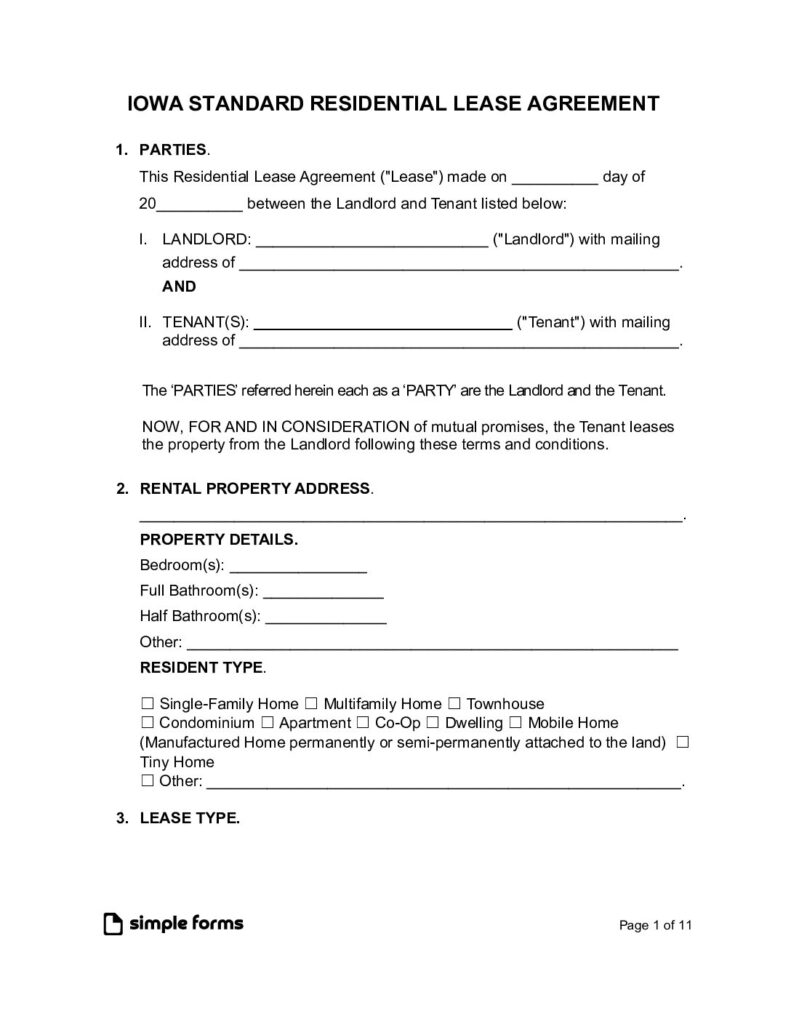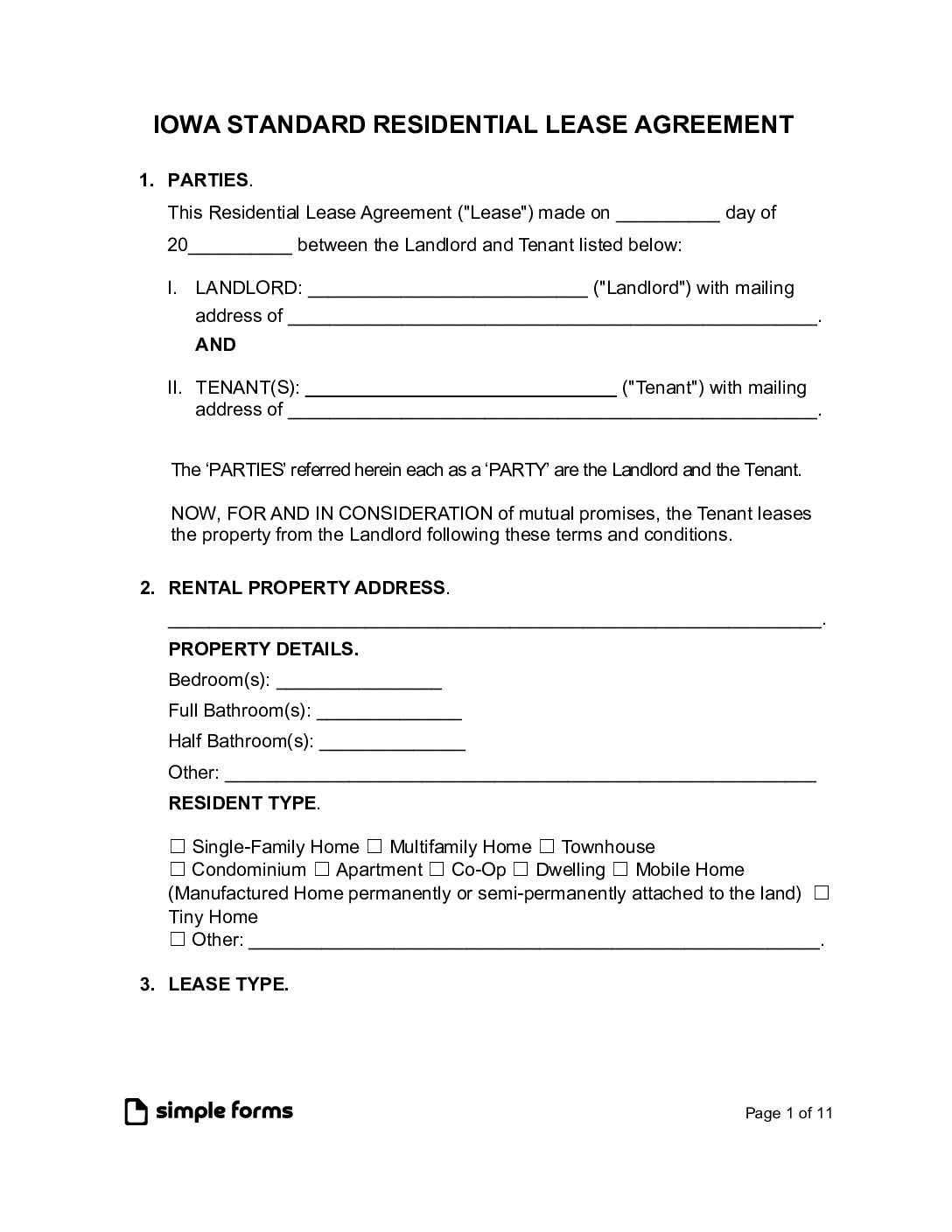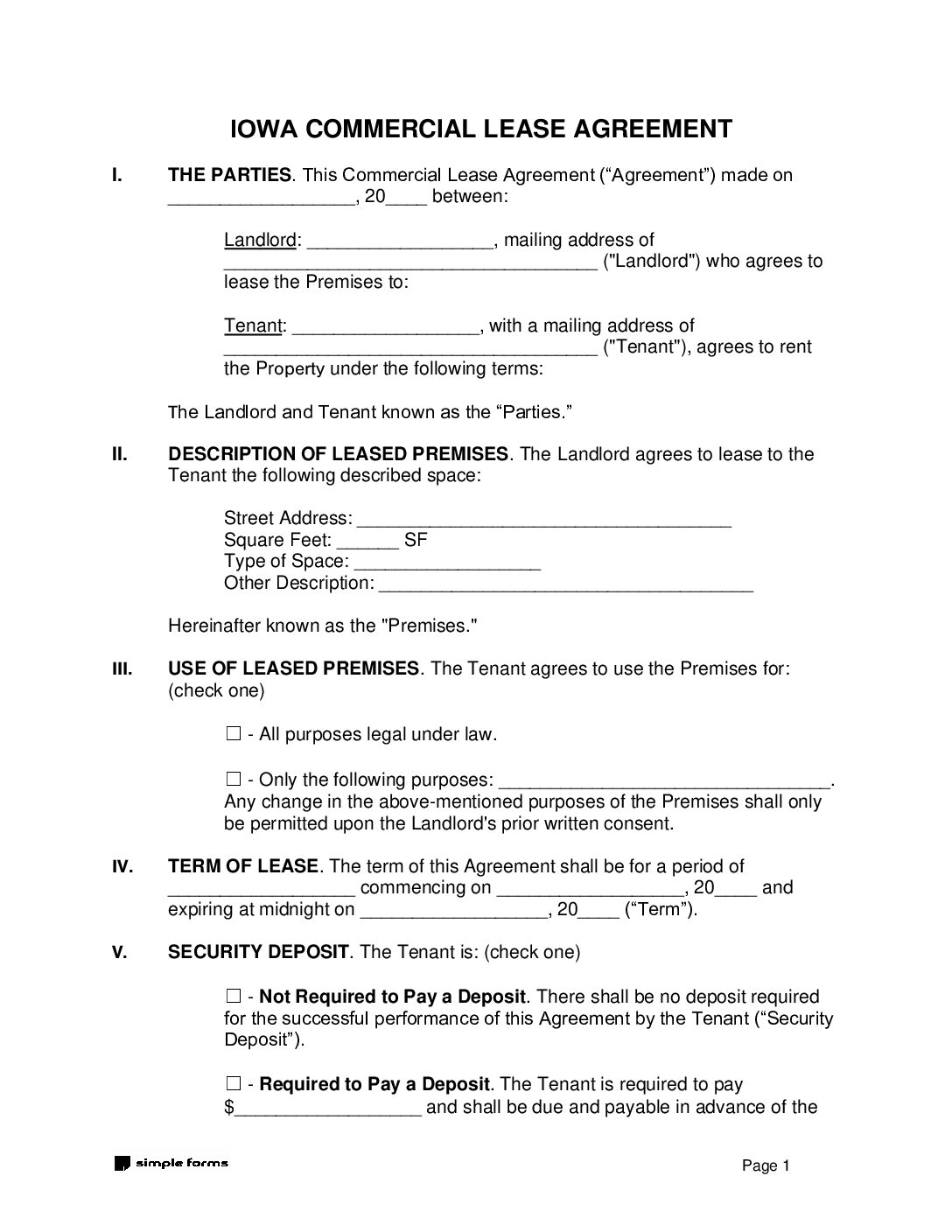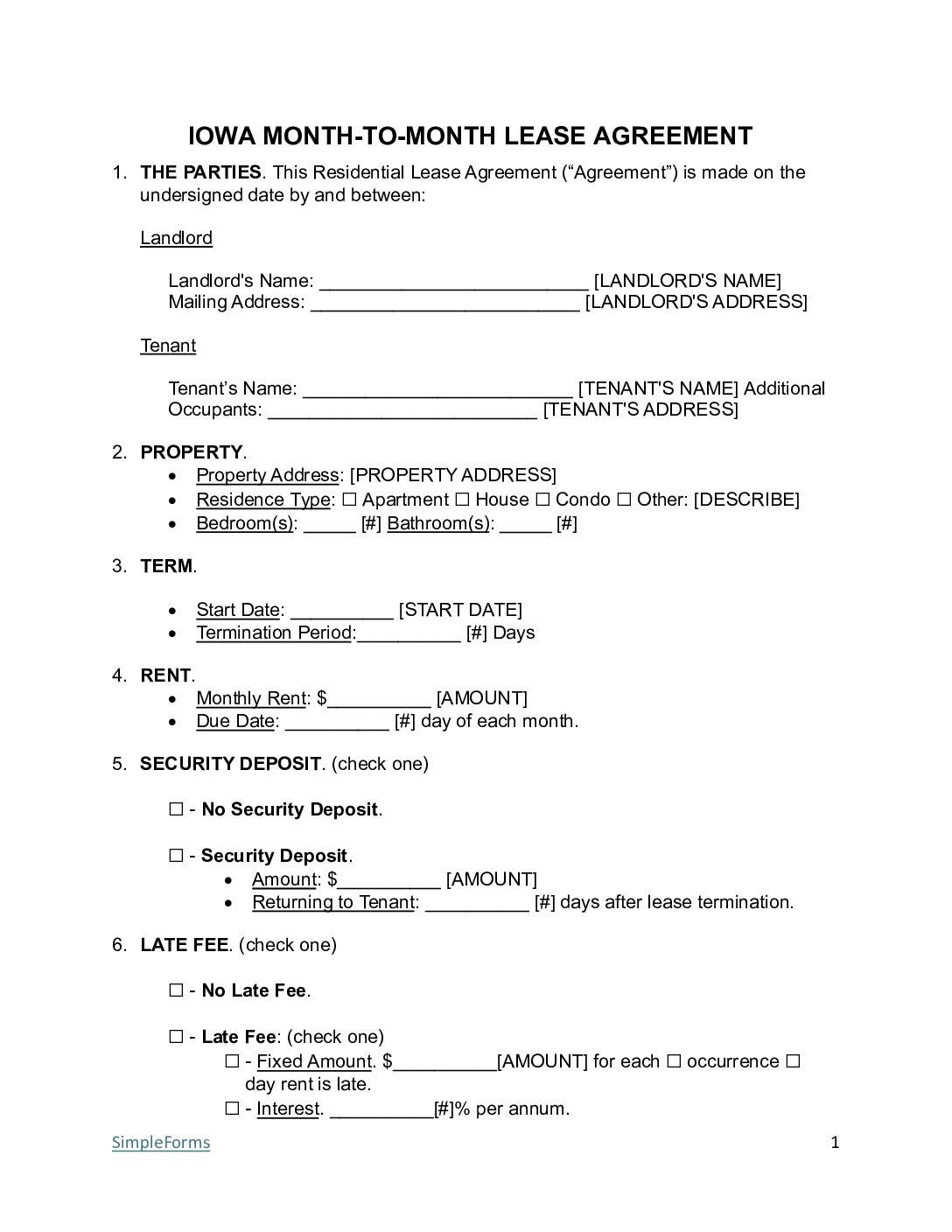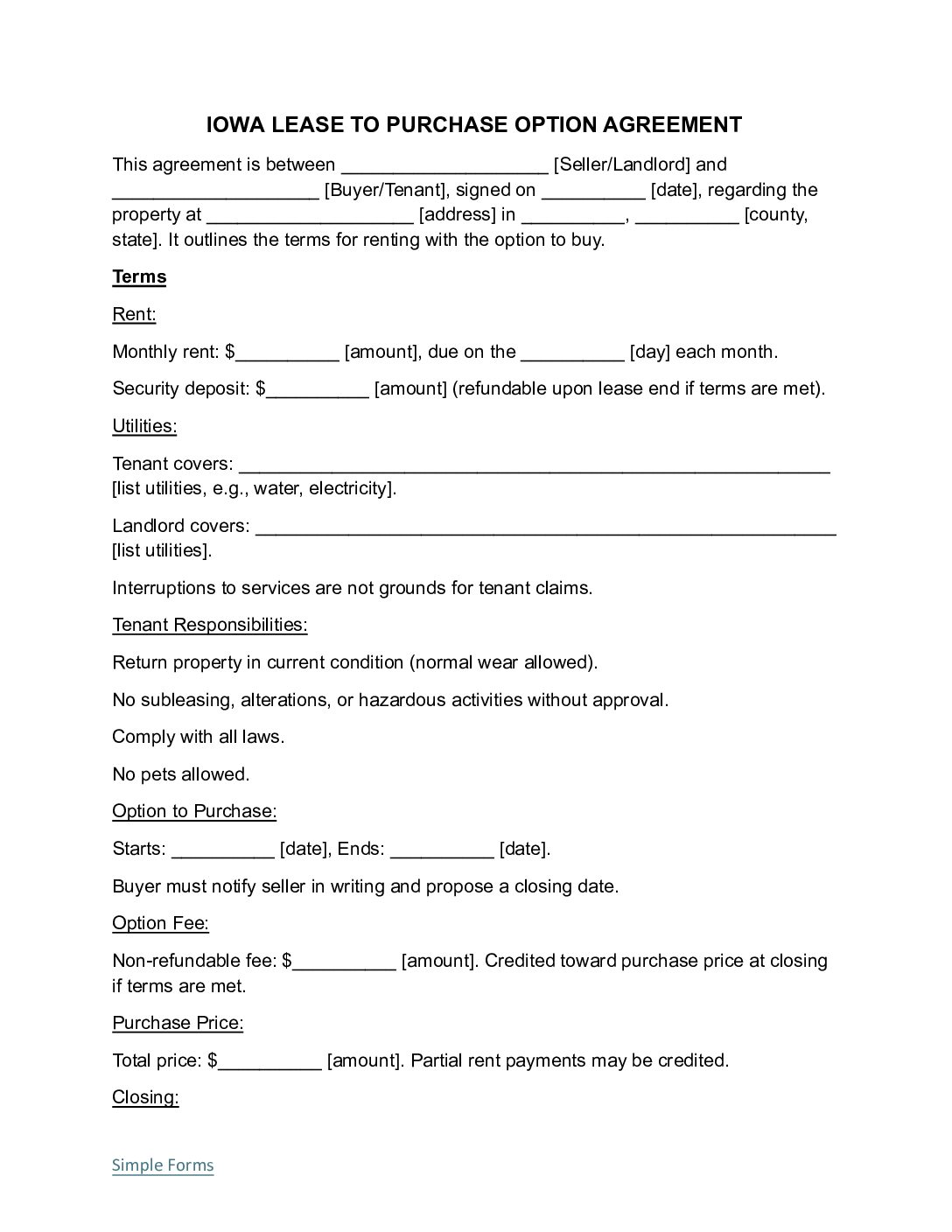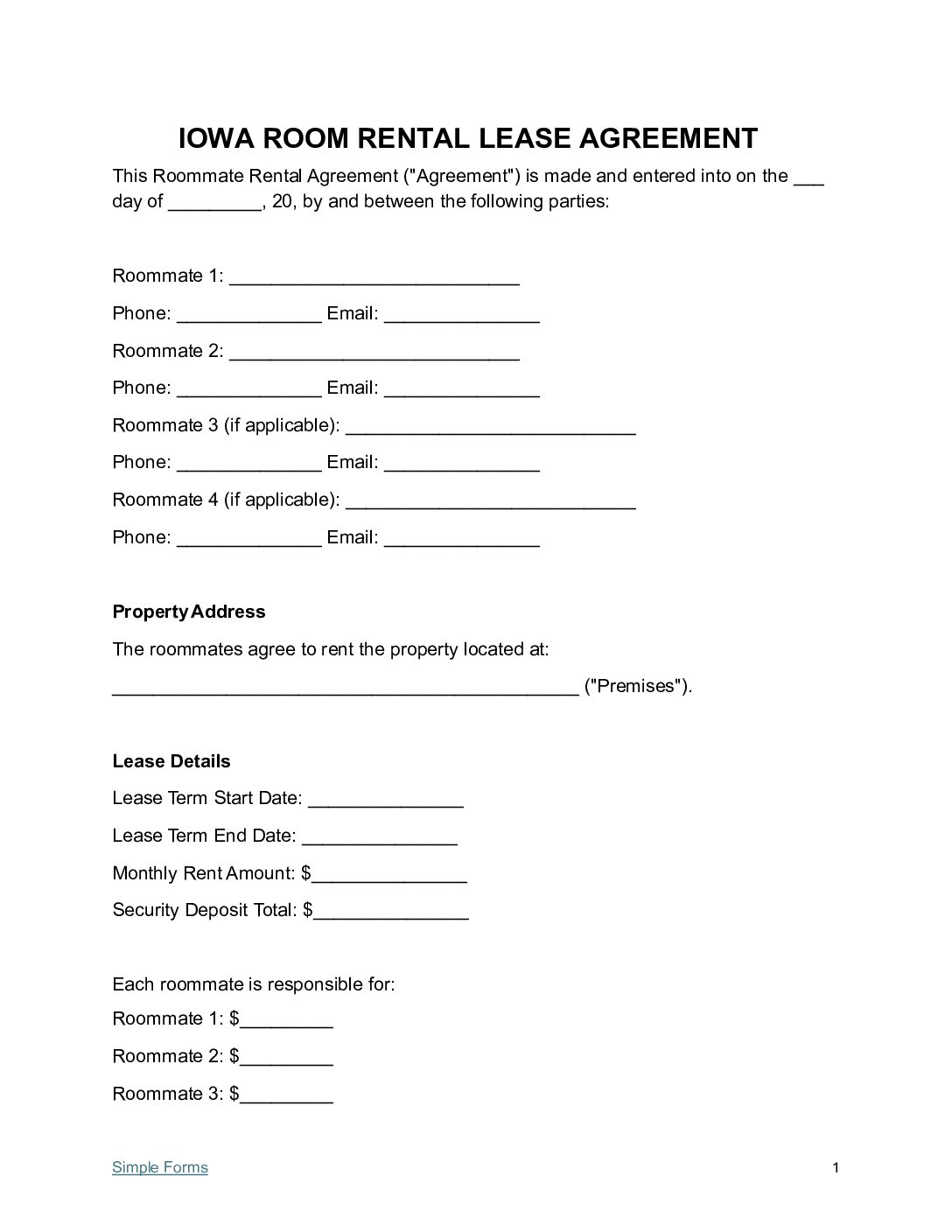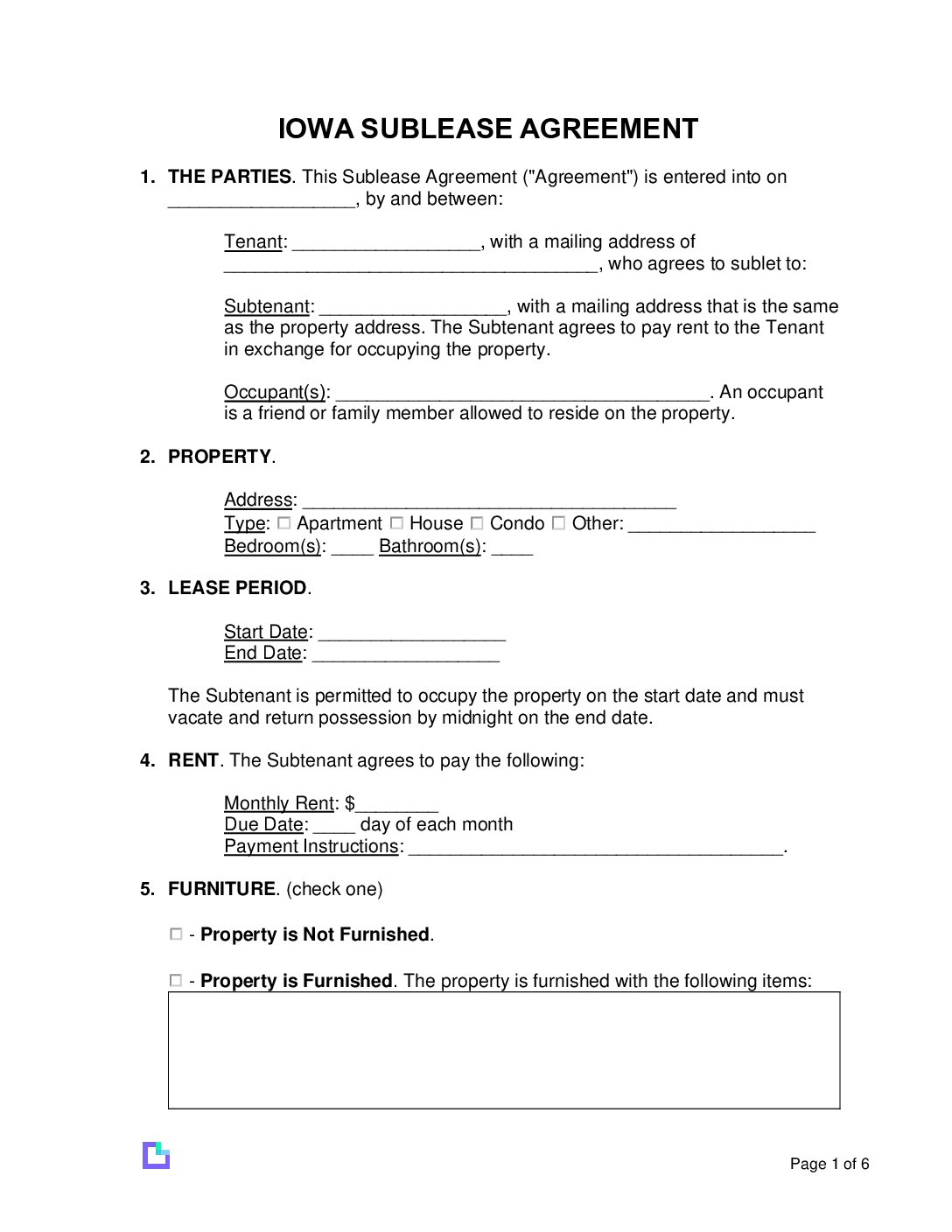By Type (7)
Download: PDF | Word (.docx)
Download: PDF | Word (.docx)
Download: PDF | Word (.docx)
Download: PDF | Word (.docx)
Download: PDF | Word (.docx)
Download: PDF | Word (.docx)
Download: PDF | Word (.docx)
What the Iowa Residential Lease Agreement covers?
The form follows Iowa’s Landlord and Tenant Law (Chapter 562A), requiring landlords to keep the property safe and tenants to pay rent on time. Security deposits must be returned within 30 days, minus damages. Evictions need proper notice, and tenants have the right to a safe home and notice of rent increases.
- Security Deposit Law
- Lease Termination
- Landlord’s Access to Property
- Rent Payment Due Dates and Late Fees
- Eviction Procedures
- Property Maintenance
- Tenant Rights
- Rent Control Laws
- Required Disclosure Forms
Security Deposit Law
Summary (Chapter 562A.12): Iowa law regulates how landlords handle security deposits:
- 30 Days – Landlords must return security deposits within 30 days after the tenant moves out.
- Itemized Deductions – Any deductions from the deposit must be itemized and provided to the tenant.
- Max Amount – Two (2) months rent.
Lease Termination
Summary (Chapter 562A.34): Iowa law outlines the conditions under which leases can be terminated:
- Landlord’s Right to Terminate
- 3-day notice for non-payment of rent.
- Reasonable time to fix other lease violations.
- Tenant’s Right to Terminate
- 30-day notice for month-to-month leases.
- Early termination in cases of domestic violence with proper documentation.
Landlord’s Access to Property
Rent Payment Due Dates and Late Fees
Summary (§ 562A.9(3), § 562A.9(4): Iowa law does not specify a standard rent due date. Landlords can charge late fees if included in the lease agreement.
- Maximum Late Fee – Up to $12 per day or a total of $60 for monthly rent agreements. For monthly rent that is $700 or less, the maximum penalty amount is twelve dollars ($12) per day, with a monthly cap of sixty dollars ($60). If the monthly rent is more than $700, the maximum penalty amount is $20 per day, with a monthly limit of $100.
- NSF Fees – Landlords can charge $30 for returned checks due to insufficient funds.
- Grace Period – 3-day notice to quit.
Eviction Procedures
Property Maintenance
Tenant’s Rights
Summary: Tenants in Iowa have several rights, including:
- Right to Privacy – Landlords must respect tenant privacy and provide adequate notice before entering the rental unit.
- Right to a Safe Home – Tenants are entitled to live in a safe and habitable residence.
- Protection from Retaliation – Landlords cannot retaliate against tenants who report safety violations or code issues.
Rent Control Laws
Required Disclosure Forms (4)
Summary : Iowa landlords must provide the following disclosures to tenants:
- Lead-Based Paint Disclosure (hud.gov) – Required for properties built before 1978.
- Landlord/Manager Contact Information (§ 562A.15) – Mailing address and contact details for property management in order to send and receive notices.
- Shared Utilities Disclosure (§ 562A.13)
- Comprehensive Environmental Response Compensation Liability Information System Disclosure (CERCLA) (EPA.gov)
